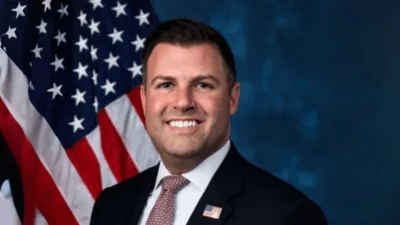The House Subcommittee on Federal Law Enforcement, led by Chairman Clay Higgins (R-La.), held a hearing today examining the Environmental Protection Agency’s enforcement tactics under the Biden Administration. The session, titled “From Protection to Persecution: EPA Enforcement Gone Rogue Under the Biden Administration,” focused on claims that federal environmental authorities have used aggressive methods to target small businesses.
Chairman Higgins opened the hearing by outlining concerns about raids conducted by armed EPA agents and their impact on small business owners. He stated, “Today the Subcommittee is going to hear about the aggressive enforcement tactics employed by the Environmental Protection Agency and the Department of Justice to intimidate small businesses into consent agreements and other enforcement actions.”
He continued, “Today’s hearing focuses on one specific issue: the overly aggressive enforcement tactics, many of which are better suited for hardened criminals, used by the Biden Administration to intimidate hard-working small businessowners and set an example through regulatory terror against everyday American entrepreneurs.”
Higgins acknowledged that Congress has granted criminal enforcement authority to the EPA through legislation such as the Clean Air Act. “The Clean Air Act clearly provides the EPA with criminal enforcement authority. Like it or not, Congress granted the EPA that authority,” he said.
However, he questioned whether this authority has been applied fairly in recent years. “What is in question is whether the agency—which has seen its enforcement program shift from prosecuting industrial polluters to persecuting small businesses—has fairly and consistently applied its use of criminal authority, or if enforcement actions under the Biden Administration were hyper-charged in pursuit of left-wing political objectives under the banner of so-called ‘environmental justice.’”
Higgins referenced an internal 1993 EPA memo indicating that criminal responsibility was intended for senior management or corporate officers when violations were committed knowingly and willfully. The memo also noted limitations on prosecuting certain types of violations: “Automobile dealer or repair shop tampering with automotive air emission systems still can not be prosecuted criminally under the CAA since the mobile source regulations impose various compliance certification responsibilities only on automobile manufacturers and not on the dealers.”
According to Higgins, there has been a shift away from targeting large industrial polluters toward smaller businesses less able to mount legal defenses. He said, “Over time, the EPA’s enforcement focus has clearly shifted. Instead of pursuing massive industrial polluters who employ highly paid legal defense teams, EPA under the Biden Administration chose to focus on mom-and-pop shops with limited means to argue their case against the legal might of DOJ.”
He described how some EPA actions have involved raids by armed agents: “Often, the EPA’s enforcement actions involved raids on shops by teams of armed EPA agents who intimidate small businesses with threats of criminal prosecution. If achieved, these prosecutions would deprive targeted individuals of their right to vote, their Second Amendment rights, and destroy their hard built businesses.”
As a former Sheriff’s Deputy, Higgins questioned why armed federal agents are needed for technical violations: “As a former Sheriff’s Deputy, I question why the EPA even has the authority to have armed agents raiding Americans’ homes and workplaces for alleged violations that are often highly technical and do not suggest any threat of harm or violence to law enforcement. There are plenty of other law enforcement resources at the state and local level that, when truly appropriate, the EPA could employ to help execute a warrant.”
He concluded his remarks by suggesting these tactics serve more as intimidation than public safety measures: “But what is clear is that the use of armed EPA agents is not motivated by public safety. Rather, such heavy-handed tactics are clearly aimed at intimidation. For this reason, the Subcommittee is conducting a thorough review of all regulatory agencies’ ‘badge and gun’ authority to determine if rogue administrative agencies need their authorities curtailed.”
“For I fear the EPA’s aggressive use of its criminal authority proves the adage ‘power tends to corrupt and absolute power corrupts absolutely.’”
James Comer currently serves in Congress representing Kentucky's 1st district after succeeding Ed Whitfield in 2016 (https://comer.house.gov/about). Before his tenure in Congress began in 2016 (https://comer.house.gov/about), Comer served in Kentucky's House of Representatives from 2001 until 2012.
Comer was born in Carthage, Tennessee in 1972 and now lives in Tompkinsville at age 50. He graduated from Western Kentucky University with a Bachelor of Science degree in 1993.








